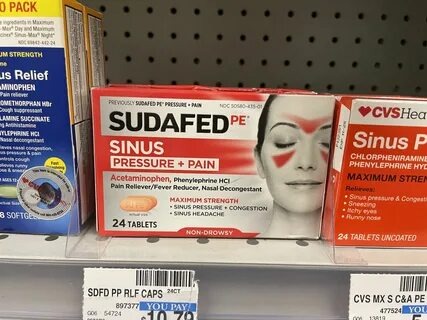Many Canadians experience seasonal colds, flu-like symptoms, or sinus congestion during the year. Tylenol Cold and Sinus is a common over-the-counter medicine that combines acetaminophen with decongestant properties. It is designed to relieve headaches, nasal congestion, sinus pressure, and mild fever. Because it is widely available in pharmacies across Canada, understanding its safe dosage and proper use is important to avoid risks and ensure effective relief.
Key Ingredients in Tylenol Cold and Sinus
Tylenol Cold and Sinus works because of its main active ingredients. Knowing what each does helps users understand why correct dosing matters.
Acetaminophen
This ingredient reduces fever and relieves mild to moderate pain such as headache, sore throat, and muscle aches.
Phenylephrine or Pseudoephedrine
These ingredients act as decongestants. They shrink swollen nasal passages and ease sinus pressure. Some Canadian versions contain phenylephrine, while others may use pseudoephedrine, which is sold behind the counter.
Other Added Ingredients
Some Tylenol Cold and Sinus variations also include cough suppressants or antihistamines. Always check the label before use since dosage may differ depending on the formula.
Recommended Safe Dosage for Adults in Canada
Correct dosage depends on the specific Tylenol Cold and Sinus product. However, most adult formulations share similar dosage guidelines.
General Dosage for Adults
- Take 1–2 tablets every 4–6 hours as needed
- Do not exceed 8 tablets in 24 hours
- Avoid combining with other acetaminophen products to prevent overdose
Extended-Release Formulas
Some versions come in extended-release caplets. In such cases:
- Take 1 caplet every 8 hours
- Do not exceed 3 caplets in 24 hours
Safe Dosage Tips
- Always use the measuring cup or instructions provided for liquid forms
- Stick to the maximum daily limit to protect your liver from damage
- If you miss a dose, take it as soon as you remember, but never double the dose
Special Dosage Considerations for Different Groups
Seniors in Canada
Older adults may be more sensitive to side effects such as increased blood pressure or dizziness. It is safer to start with the lowest effective dose and consult a healthcare professional if symptoms continue.
Teenagers
Most Tylenol Cold and Sinus products are recommended for people 12 years and older. For teens, adult dosage usually applies, but always confirm with a doctor if the teenager is underweight or has other medical conditions.
Children
Children under 12 should not take adult formulations. Instead, choose children’s cold and flu products with appropriate acetaminophen dosage. Giving Tylenol Cold and Sinus to younger kids can increase risk of overdose or dangerous side effects.
What to Avoid While Taking Tylenol Cold and Sinus
Safe dosage also depends on avoiding harmful drug interactions and lifestyle choices.
Alcohol
Avoid alcohol while taking Tylenol Cold and Sinus because it increases the risk of liver damage from acetaminophen.
Other Medications Containing Acetaminophen
Check labels carefully. Cold and flu products often contain acetaminophen, and combining them can unintentionally exceed safe limits.
High Blood Pressure Medications
Decongestants in Tylenol Cold and Sinus may raise blood pressure, which can interfere with prescribed treatments. People with hypertension should talk to their doctor before use.
Caffeine
Large amounts of caffeine can increase nervousness or rapid heartbeat when combined with decongestants.
Common Side Effects When Dosage Exceeds Safe Levels
Taking more than the recommended amount increases the risk of side effects.
Mild Side Effects
- Nervousness or restlessness
- Dizziness
- Trouble sleeping
Serious Side Effects
- Rapid heartbeat
- Severe headache
- Nausea or vomiting
- Liver damage if acetaminophen is overused
If any serious side effects appear, stop use immediately and seek medical attention.
Tips for Safe Use of Tylenol Cold and Sinus in Canada
Always Read the Package
Canadian pharmacies often sell multiple versions under the Tylenol brand. Some are for daytime, others for nighttime use. Always check whether it is Daytime, Nighttime, or Extra Strength before following the dosage instructions.
Follow the 24-Hour Limit Strictly
Never exceed the daily maximum of acetaminophen. For most healthy adults, the safe upper limit is 4,000 mg per day.
Store Safely
Keep Tylenol Cold and Sinus out of reach of children. Store in a cool, dry place away from direct sunlight.
Use Only When Necessary
If your symptoms are mild, consider whether rest, hydration, and steam inhalation might help before taking medication. Overuse can lead to tolerance or unnecessary side effects.
When to See a Doctor Instead of Self-Medicating
Although Tylenol Cold and Sinus is safe for short-term use, there are times when medical advice is essential.
- If symptoms last longer than 7 days
- If fever remains high despite medication
- If you experience chest pain, severe dizziness, or breathing difficulties
- If you are pregnant, breastfeeding, or have chronic health conditions such as heart disease, diabetes, or liver problems
Expert Insights for Canadian Users
Canadian health professionals emphasize the importance of reading product labels carefully. Because many colds improve on their own within a week, medication should be seen as short-term relief, not a cure. Combining it with adequate hydration, rest, and balanced nutrition improves recovery.
Final Thoughts on Safe Dosage
Tylenol Cold and Sinus is a trusted choice for many Canadians to relieve cold and sinus symptoms. By following the correct dosage, avoiding harmful interactions, and recognizing when to seek medical advice, you can use this medicine safely and effectively. Responsible use ensures relief without risking your health, making it a reliable companion during cold and flu season in Canada.


